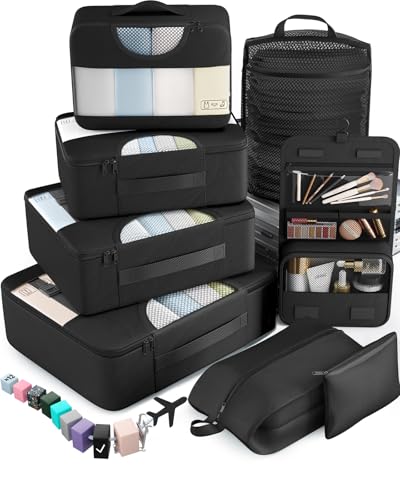In Rwanda, they use Type C and J power plugs and outlets. The voltage is 230V, and the frequency is 50Hz.
⚠️ So, you’ll need a travel adapter in Rwanda. Their plugs and outlets are different from the Type A and B ones we use back in the States.
Quick Overview of the Plugs in Rwanda:
- Plug type in Rwanda: C and J
- Standard voltage: 230V
- Frequency: 50Hz
- Need a travel adapter? Yes, you do need a travel adapter
- Need a voltage converter? Might be needed depending on the device
- Recommended plug adapter: Vintar Universal Travel Adapter Kit
Our information is collected from local power authorities, verified with IEC international standards, and enriched by feedback from travelers worldwide.
Power Outlets in Rwanda
In Rwanda, they use Type C and J power plugs and outlets.
Type C

Type C outlets have two round prongs and no grounding pin. Type E and F plugs usually fit too, but grounded plugs will need an adapter.
Type J

Type J outlets have three round prongs in a triangular layout with a grounding pin, and accept both Type J and Type C plugs, though Type C plugs will not be grounded.
The Only Travel Adapter You’ll Need in Rwanda
Ever landed in a new country, only to realize your charger doesn’t fit? Been there, done that. We don’t sell travel adapters, but we’ve done the research to find the best one for Rwanda—covering voltage, plug types, safety, and price. This one’s a must-have:
Recommended Travel Plug Adapter
by 1,000+ travelers on Amazon
Traveling or already abroad and realized you don’t have a power adapter? That happens. You can often buy one after you arrive, but bringing one from home is still the smarter move.
People visiting Rwanda often continue their journey through Democratic Republic of the Congo, Tanzania, and Uganda. Make sure to check plug compatibility in advance.
Do You Need a Voltage Converter?
A voltage converter is likely needed in Rwanda because your device must match the country’s voltage. The U.S. runs on 120V, but Rwanda uses a different voltage, so a converter is necessary.
To be safe, always check the label on your electronics before you travel. If you see “100-240V, 50/60 Hz”, your device is compatible with multiple voltage systems and won’t need a converter. Most phones, laptops, tablets, cameras, and rechargeable toothbrushes have this capability.

Which Travel Devices May Need a Converter?
Don’t want to guess which converter works? Here are the best-reviewed ones worth checking out.
| Device | Need Converter? | Notes |
|---|---|---|
| Phone | ❌ No (usually) | Most modern phone chargers are dual voltage (100–240V) |
| Laptop | ❌ No (usually) | Check the power brick label for 100–240V |
| Hairdryer | ✅ Yes (often) | High wattage; many models are not dual voltage |
| Electric toothbrush | ⚠️ Check voltage | Some models are 110V only |
| Camera / DSLR | ❌ No (usually) | Most chargers are dual voltage |
| Power bank | ❌ No | Charges via USB, adapter is enough |
| Electric shaver / trimmer | ⚠️ Check voltage | Older or cheaper models may not support 230V |
| Tablet / iPad | ❌ No | All models are dual voltage |
| Portable fan | ✅ Yes (sometimes) | Many models are not compatible with 230V |
| Game console | ⚠️ Check voltage | Newer consoles like PS5 and Xbox are often dual voltage — check to be sure |
| Bluetooth speaker | ❌ No (usually) | Charges via USB |
| E-reader (Kindle, etc.) | ❌ No | USB charging only, no converter needed |
Top Travel Essentials to Pack
Once you’ve got power covered, these are the extras that help everything else run smoother. Think of them as your travel sidekicks.
Digital Luggage Scale
Packing Cubes
Power Bank
No products found.
More About Rwanda
Rwanda punches way above its size—think “Land of a Thousand Hills,” but you can drive across the whole country in a day. That terrain diversity means gorilla-trekking, chimp-chasing, savanna wildlife, and peaceful lakeside hangs all in one trip.
It’s also one of Africa’s safety success stories: roads are paved, cities are clean, and street life feels calm—even in Africa—thanks to good planning and regular community cleanup days.
And don’t overlook culture: art cooperatives make imigongo cow-dung crafts; local bars pulse with hip-hop optimism; and Kigali’s restaurants are evolving, serving tasting menus that rival those in bigger food capitals.



